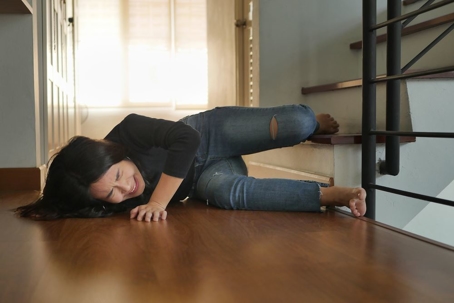Being injured on someone else’s property can leave you in a tight spot. On one hand, you are injured and have rights to be compensated for what you have been through as well as medical bills and lost wages. On the other hand, filing a claim against the property owner may be difficult, especially if you personally know the individual.
When an injury is sustained on another’s property, determining liability will depend on several factors that must be proven by the plaintiff’s legal counsel. This applies to all personal injury claims, including those associated with premises liability. The mere fact that an injury occurs at a specific location is not the only determining factor.
In order to prove premises liability claims, there must be elements of negligence involved. Courts will also look into the actions of both the injured plaintiff as well as the property owner before the injury occurred. Taking into consideration an injured party’s actions before the injury occurred is known as comparative negligence. In premises liability cases, is typically termed as a reasonable assumption of personal risk.
This is almost always a component of a premises liability injury case on some level and is a common defense opposing parties that an experienced premises liability lawyer will immediately expect.
Proving Premises Negligence in Public Locations
All property owners or business managers are required to maintain a reasonably safe environment for their visitors and patrons. For businesses open to the public, for example, this could include keeping straight and orderly aisle ways with no overhead dangers that could result in falling merchandise.
Wet spots on the floor are another typical hazard that commonly results in personal injuries for both customers and employees alike. Parking lots are included in this maintenance area as well, and property owners could easily be found liable if they do not maintain parking areas and external facilities.
The plaintiff’s legal counsel must prove an injury occurred to their client and connect the injury to the location and failure to maintain a reasonably safe environment for the client.
Proving Premises Liability on Private Property
Proving an injury sustained on private property is different from proving those that occurred in public places. In cases of private property, the injured claimant must occupy the property legally in most cases. While this is not always a defense, injuries that occur when a client is trespassing on property or posted as “Enter at Your Own Risk” could be dismissed from court when a property owner denies responsibility and forces a legal filing.
Defenses for these types of cases can be more intense and detail driven. The level of comparative negligence is always the question in private property injury disputes, and having an experienced premises liability attorney representing the case means the injured plaintiff is not left to accept the claims of the property owner without legal recourse.
Proving the Extent of the Injury
Premises liability injury claims range widely with respect to material case facts and extent of injury. Some serious cases could include fatalities or wrongful death, while a typical injury claim may only be for moderate injuries.
Your attorney will assemble all pertinent medical treatment documentation and calculate the total amount of these compensatory special damages. The extent of injury will also include compensation requests for pain and suffering based on the time it takes for the injured party to fully recover.
All personal injury attorneys understand that serious injuries could result in permanent long-term damage and that being properly compensated can be a difficult task for a claimant without professional representation.
Your premises liability attorney in Chicago will tally all potential difficulties that will arise from the injury and request an appropriate amount in bargaining based on their prior experience with injury cases. And, if going to trial is necessary for full compensation, your attorney from Panio Law Offices will be vital.
Trials and Punitive Damages
Either party can request a premises liability case be taken to a trial, but this can be a gamble for the defending parties. One primary reason an insurance company or property owner will want to avoid a trial is potential punitive damages when your attorney can prove gross negligence.
Insurance companies could also be liable for punitive damages as well when it can be proven they have used bad faith in attempting to settle for less or denying a claim. This is more common than injured claimants realize, but your premises liability attorney will know how to craft a case for the maximum award when this happens, especially if gross negligence can be proven by either party.
Contact Panio Law Offices in Chicago
Never attempt handling a premises liability injury claim on your own The outcome may be unwanted and all of your rights to financial compensation may not be enforced. Always hire a comprehensive and aggressive premises liability lawyer with a long track record of results for their injured clients.
You usually only have one day in court for proper compensation, and your attorney matters significantly. In Chicago, always call Panio Law Offices for full-service and seasoned legal representation.

